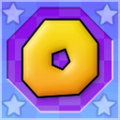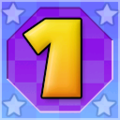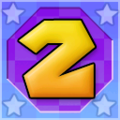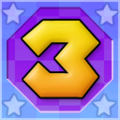Cointagious: Difference between revisions
From the Super Mario Wiki, the Mario encyclopedia
Jump to navigationJump to search
m (Text replacement - "(\| *)Jap([RMCN\d]* *=)" to "$1Jpn$2") |
No edit summary Tag: Mobile edit |
||
| Line 2: | Line 2: | ||
|image=[[File:Cointagious.png|260px]] | |image=[[File:Cointagious.png|260px]] | ||
|appears_in=''[[Mario Party 7]]'' | |appears_in=''[[Mario Party 7]]'' | ||
|type=4-Player | |type=4-Player Coin minigame | ||
|time=20 seconds | |time=20 seconds | ||
|track=Fun in the Sun | |track=Fun in the Sun | ||
Revision as of 18:05, February 11, 2025
| Cointagious | ||
|---|---|---|
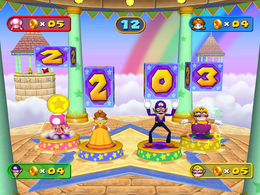
| ||
| Appears in | Mario Party 7 | |
| Type | 4-Player Coin minigame | |
| Time limit | 20 seconds | |
| Music track | Fun in the Sun | |
| ||
Cointagious is a 4-Player coin-collecting minigame in Mario Party 7. Its name is a portmanteau of the words "coin" and "contagious."
Introduction
The screen zooms in on the four players as four Dice Blocks appear.
Gameplay
The goal is to collect as many coins as possible. For 20 seconds, the players hit Dice Blocks that roll from zero to three. The number that appears on a Dice Block when rolled is how many coins are received. Any coins players receive are added to their coin inventory afterward.
Ending
After time is up, all the Dice Blocks disappear. All players who got coins do their victory animations. If a player did not get any coins, they will do their losing animation instead.
Controls
 – Jump
– Jump
In-game text
- Rules – "Hit the Dice Block to earn the same number of coins as the number rolled."
- Advice – "You can hit the Dice Block many times. Jump, jump, jump!"
Gallery
Names in other languages
| Language | Name | Meaning | Notes |
|---|---|---|---|
| Japanese | たたいてコインサイコロ[?] Tataite koin saikoro |
Hit the Coin Dice | |
| French | Tape Dé-Pièces[?] | Tap Dice-Coins, dé ("dice") being similar to des ("some") | |
| German | Münziplikator[?] | Pun on Münze ("coin") and Multiplikator ("multiplier") | |
| Italian | Gettonando[?] | Coining; from gettone, the word for a jukebox or telephone coin with no monetary value, with a gerund suffix. | |
| Spanish | Monedados[?] | Portmanteau of moneda ("coin") and dados ("dice") |
| show Minigames from Mario Party 7 |
|---|
